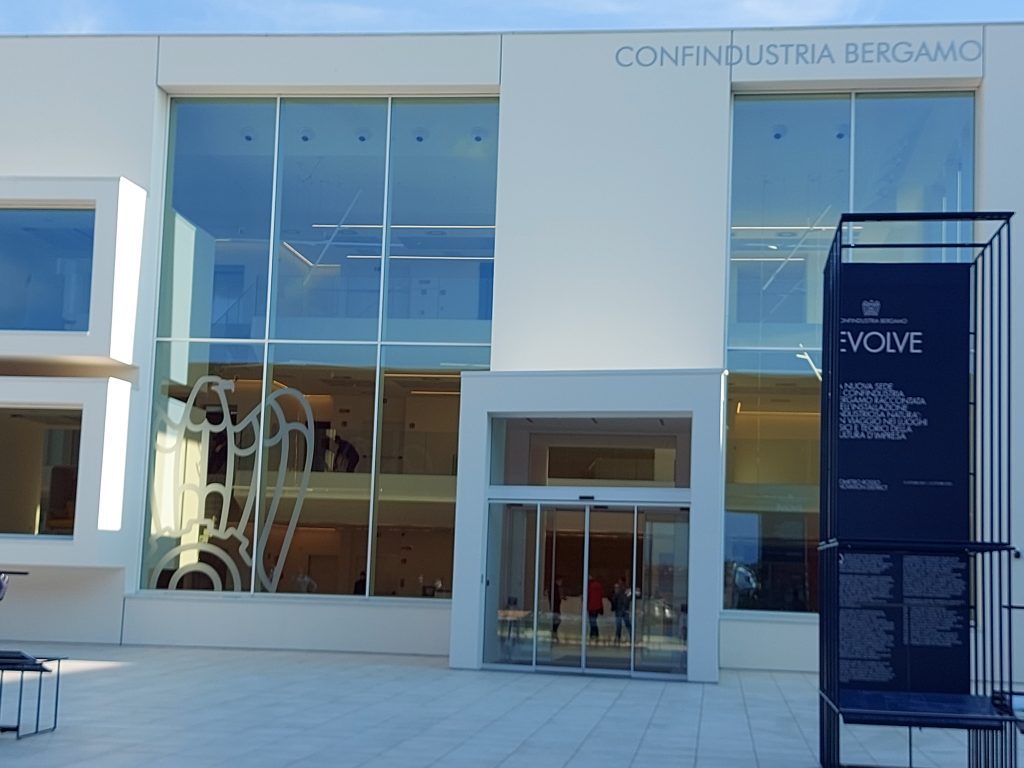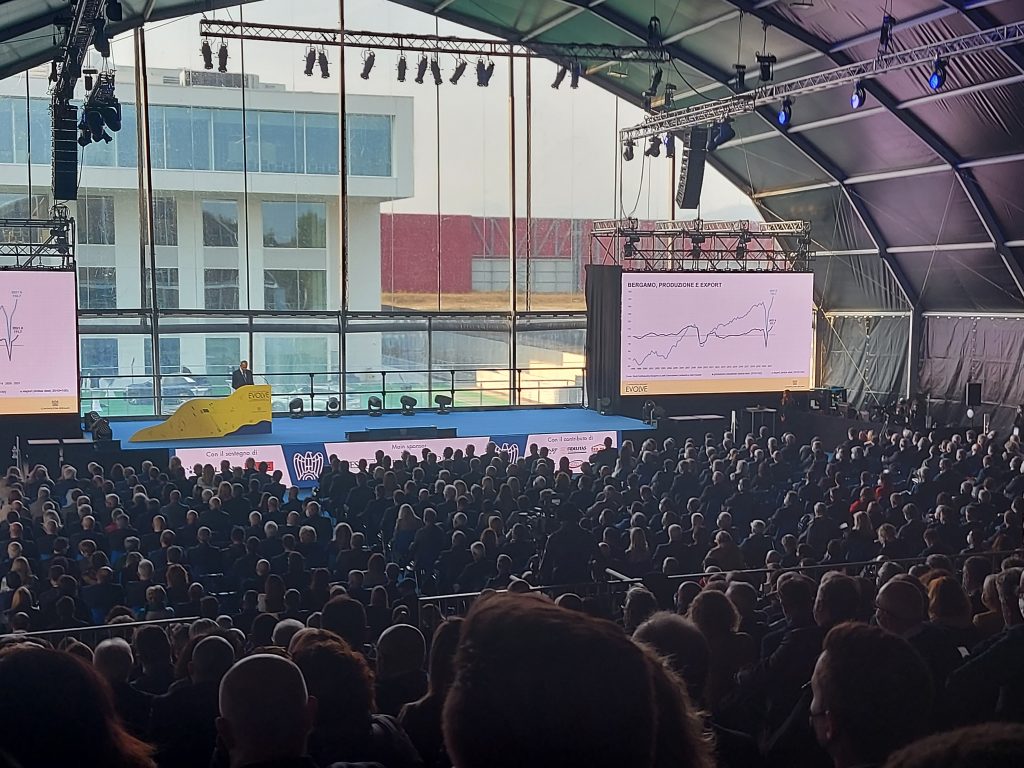We want to develop a network of companies, to help them enter the international market, especially those who would not otherwise have the opportunity and to say the courage to “attack” the increasingly competitive market.
In an exclusive interview for this year’s special edition of InFocus Confindustria Serbia, Maria Luisa Meroni, President of Confindustria Est Europa, talks about the organization’s inception in 2010, its goals and plans. “I have very ambitious plans during my term as president. My vision is to make CI recognizable in the coming period and to bring in new members because there is often no clear picture of who we are and what we represent. Our idea is to promote a new business culture to enable small and medium-sized enterprises to successfully participate in the growing international market. Of course, all that depends on the expertise of the actors themselves, as well as on innovation and digitalization,” says Maria Luisa Meroni.

Could you introduce us to the world of Confindustria Est Europa? When was it founded, what is the basic idea behind the organization and at what point in your journey are you at the moment?
Confindustria Est Europa (CI) was founded in 2010, by uniting the first international representations in Eastern European countries. Our mission is to provide Italian entrepreneurs with a new approach to this region, facilitate cross-border cooperation and practically group Italian entrepreneurs who are interested in doing business in the countries of this region, which we know are closely related in sociological, economic and cultural terms. The federation I represent consists of 11 international representations – Albania, Bulgaria, Montenegro, Belarus, Bosnia and Herzegovina, Poland, Romania, Serbia, Slovenia, North Macedonia, Ukraine, and soon Hungary. So, this is a big federation, of great international significance.
What are the plans of Confindustria Est Europa and what are the key topics of your presidency?
I have very ambitious plans for my term. My vision is to make CI recognizable in the coming period and to include new members because oftentimes people don’t have a clear picture of who we are and what we represent. It is a process that my predecessor started, and the goal is to solidify our market position and ensure better visibility. Another important goal is to boost cooperation with CI Brussels (EU), which is very important for all our members. I would like to also underline the importance of small and medium-sized enterprises, which we know are the basis and the driving force behind the national economy. Our idea is to promote a new business culture to enable small and medium-sized enterprises to successfully participate in the growing international market. Of course, all that depends on the expertise of the actors themselves, as well as on innovation and digitalization.
We also want to develop a network of companies to help them enter the international market, especially those that would not otherwise have the opportunity or courage to do so, i.e. to “attack” this increasingly competitive market. Another important aspect is the relations with Italian and international institutions in order to facilitate the process of investing in these countries.

We know that, in addition to other activities in your programme, you will be holding an energy and regional connection conference in Belgrade. Could you elaborate on that? What can we expect from the conference?
We expect this high-level conference to be held on February 22 in Belgrade. It will focus on a very important topic – THE GREEN DEAL. The highest representatives of the government, institutions and the president are expected to attend. The main topic is the energy transition, which inevitably reflects and affects all our activities. I hope that our delegation, our speakers, led by the President of CI Serbia, will make a significant contribution to their presentations. We look forward to seeing you all on this forum.
How do you think the Balkans and Central and Eastern Europe will recover from the coronavirus pandemic? Are Italian companies interested in countries covered by Confindustria Est Europa?
Unlike Italy, where the vaccination campaign has been very successful and I hope that we will soon reach a 90% vaccination rate which enables us mobility and thus productivity and long-term planning, the data from the countries that Confindustria Est Europa covers are not that encouraging. It is true that economic growth was recorded in all these countries (Albania 6.4 per cent; Bulgaria 3.5; Montenegro 8.4; BiH 3.4; Poland 5.3; Romania 6.8; Serbia 6.2; Slovenia 5.2; North Macedonia 3.5 per cent), but a vaccination campaign is something that needs to be worked on, primarily for the benefit of personal well-being and then for economic recovery. We must not forget another important aspect, such as reshoring, i.e. increased interest and demand for these countries. So, if we know how to seize the moment, I would say that there is a good chance for development and progress.
You are the first woman to become president of Confindustria Est Europa. How do you feel in this role?
I am, of course, very proud of that and very honoured. I came to this new job from CI Bulgaria. Keep in mind that the other 11 presidents I work with are all men, which is not simple at all. But I think it’s not a question of gender, but of ability, expertise and merit. Confindustria Est Europa has been implementing the project called STEAMiamoci, which goal is to encourage women’s entrepreneurship. This project is very important to me because it seeks to reduce the difference between jobs in an entrepreneurial environment. But I reiterate, it all depends on expertise and ability in whatever you do.
